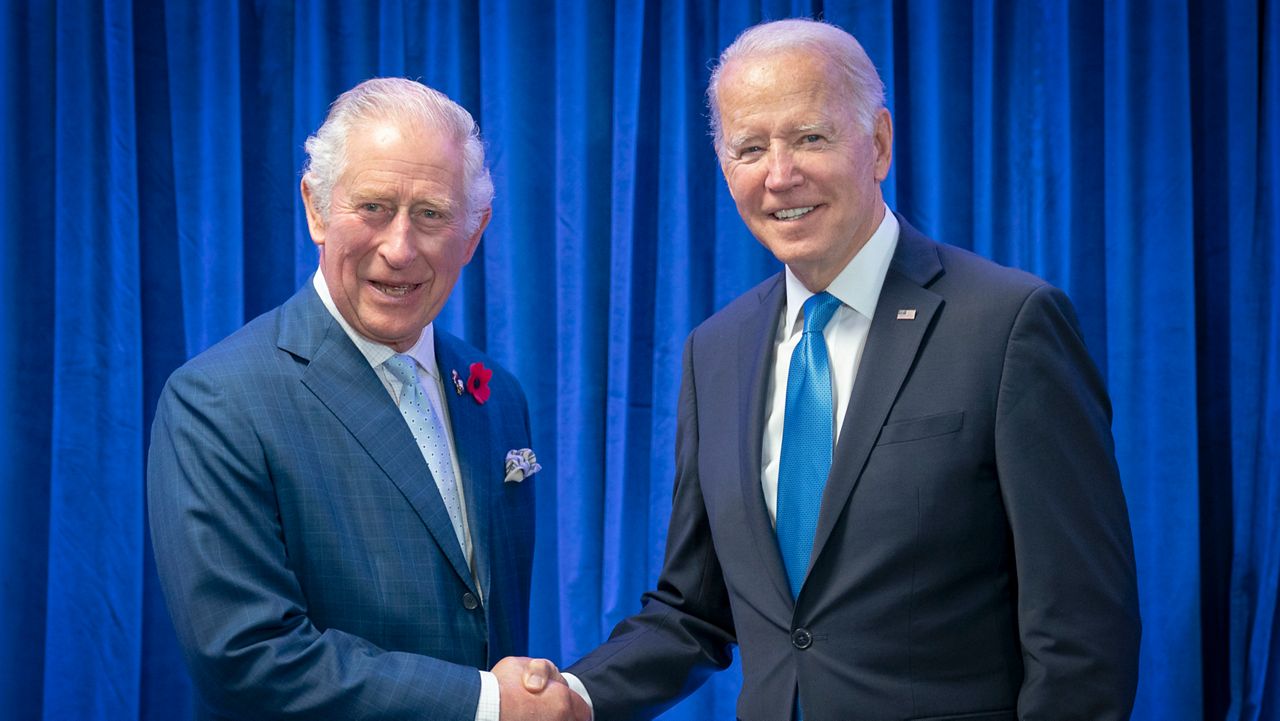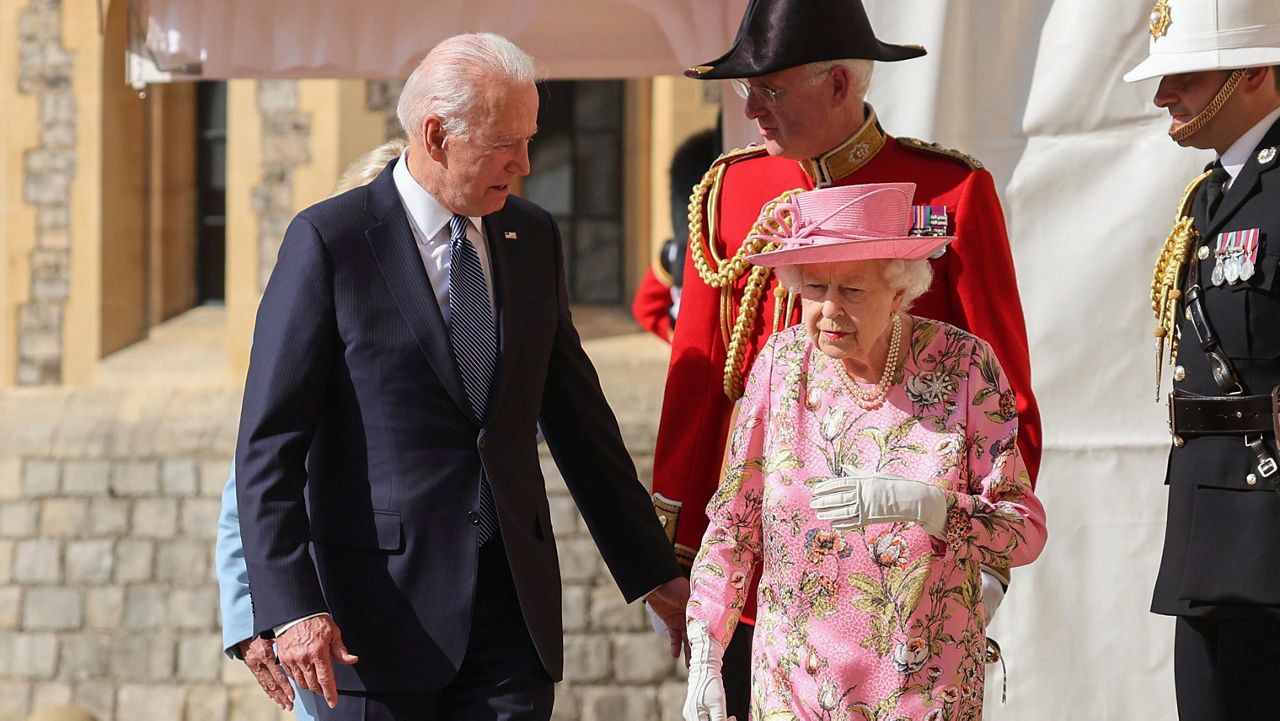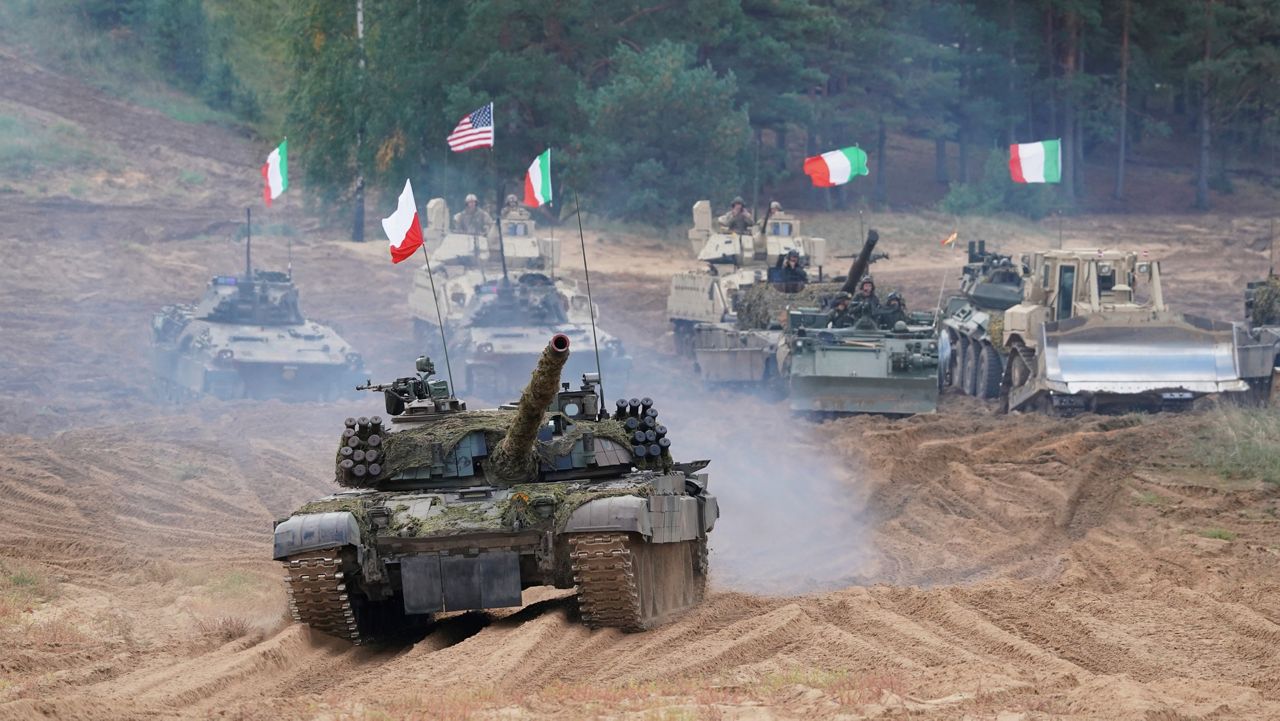President Joe Biden, the second Catholic president in U.S. history, will travel to the Vatican Friday to meet with Pope Francis as part of his trip to Europe to attend two major global summits focused on the economy and climate change, as well as a slew of sit-downs with global leaders.
Biden's meeting with the pontiff, more than six decades after John F. Kennedy’s visit to Pope Paul VI in 1963, comes amid divisions in the church – and among Catholic voters – over his stance on abortion and LGBTQ rites, and whether or not he should be given the rite of Communion.
Biden and Pope Francis have met on a number of previous occasions, including in 2015 when he was vice president.
But Friday’s meeting is likely to hold deep personal significance for the commander-in-chief – and comes amid deep political polarization in the U.S. over abortion rights, as well as fights within the Catholic Church as to whether Biden, a longtime supporter of the right to choose and LGBTQ rights, should be able to recieve Communion.
Biden, a devout Catholic, regularly attends Mass and weaves references to his faith into many of his public remarks, including at his inauguration.
“Many centuries ago, Saint Augustine, a saint of my church, wrote that a people was a multitude defined by the common objects of their love,” Biden said in his inaugural address. "What are the common objects we love that define us as Americans? I think I know. Opportunity. Security. Liberty. Dignity. Respect. Honor. And, yes, the truth."
Former President Donald Trump, Biden's predecessor, clashed with the Vatican on a number of issues, most notably immigration.
"It's quite clear the pope had a dim view of Donald Trump," John White, a professor of politics at the Catholic University of America, told Spectrum News in an interview.
Unlike the former president, Biden and Pope Francis are in agreement on issues like immigration, income inequality, and climate change, all of which White House officials said will be a major focus of their sit-down.
"They will discuss working together on efforts grounded in respect for fundamental human dignity, including ending the COVID-19 pandemic, tackling the climate crisis, and caring for the poor," White House press secretary Jen Psaki told reporters earlier this month.
"They will have a chance just to reflect, each of them, on their view of what's happening in the world, policy issues," national security adviser Jake Sullivan told reporters this week at a White House press briefing, adding that the two have exchanged letters in advance of their meeting.
Before Biden's departure to Europe on Thursday, the White House unveiled the framework for the president's $1.75 trillion spending bill, which includes funding for social services and climate change — programs of great importance to both the president and the pontiff.
Notably, the Build Back Better bill allocates $555 billion for climate priorities and clean energy – the largest legislative investment in fighting climate change ever – putting the U.S. on track to meet its goal of curbing carbon emissions by 50% to 52% by the year 2030.
Those shared goals, as well as a mutual admiration between Biden and Francis, will likely be front and center during Friday’s sit-down at the Vatican, White told Spectrum News.
White said he expects the two will have plenty to talk about: "Of course, chief among them would be the environment where they have tremendous agreement,” White said. “Immigration, social justice concerns, COVID-19.”
“It’s not a symbolic meeting,” he added. “It's a substantive meeting."
Still, major rifts remain. And unlike when Kennedy held office, the Catholic vote is no longer a monolith.
President Biden represents a growing faction of Catholic worshippers – those who support social safety programs and hold more progressive views on some social issues, including immigration.
These growing divisions were on stark display in the last presidential election: Unlike 1960, when Kennedy won the support of roughly 8 in 10 Catholic voters, Trump and Biden split the vote almost evenly in 2020 – with 50% of Catholic voters backing Trump and 49% favoring Biden, according to an AP VoteCast analysis.
More conservative members of the Catholic church have questioned Biden’s brand of Catholicism. In recent months, some U.S. bishops have pushed the church to adopt guidelines that would deny communion to Biden and other politicians who support abortion rights and protections for LGBTQ people.
It’s unclear whether the topic of abortion will come up during Friday’s meeting. Though Pope Francis has upheld the church’s traditional views of abortion, which he has publicly referred to as “murder,” he has declined to weigh in on Biden’s pro-choice beliefs.
In fact, to the best of his ability, Pope Francis has opted to stay above the political fray entirely.
Asked in September whether Biden should be denied Communion – a major punishment in the Catholic Church – Francis told reporters, “I have never refused the eucharist to anyone.”
“If we look at the history of the church, we will see that every time the bishops have not managed a problem as pastors, they have taken a political stance on a political problem,” Francis said.
“What must the pastor do?” he said in response to a reporter. “Be a pastor, don’t go condemning. Be a pastor, because he is a pastor also for the excommunicated.”
White, referencing the pontiff's recent remarks, told Spectrum News that Pope Francis “certainly does not see communion as a weapon to be used.”
Meanwhile, the politically charged abortion debate playing out in the U.S. debate has puzzled Catholics in other parts of the world.
“We are, as a continent, pro-choice, and we have been for decades now, so we witness the news in America with astonishment once again,” Martin Geisler, a Catholic tourist who traveled to the Vatican City from Austria, told Spectrum News.









